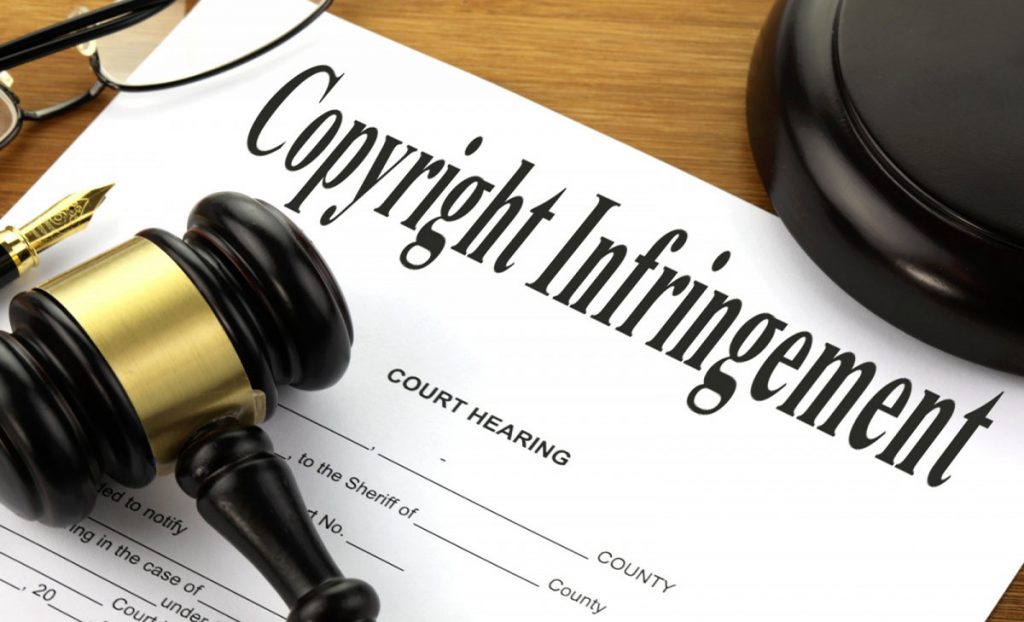Data Protection policy in Kenya
Data Protection Policy in Kenya As businesses increasingly rely on data to drive decision-making, the importance of protecting personal information has grown. In Kenya, the

Copyright Infringement Claim in Kenya
Copyright is a legal framework designed to protect the intellectual property rights of creators. According to Black’s Law Dictionary (8th edition), copyright infringement occurs when someone violates a copyright owner’s exclusive rights. This law safeguards the expression and recorded content of an individual’s intellectual work, ensuring their rights are not exploited without permission.
In Kenya, copyright protection is governed by the Copyright Act, 2001. Key sections of this Act include:
Section 26 – Defines the nature of copyright and the exclusive rights granted to copyright owners.
Section 35 – Outlines copyright infringement, stating that any unauthorized act concerning copyrighted material constitutes an infringement.
Copyright infringement happens when a third party engages in any of the exclusive acts granted to a rights holder without permission. These acts include:
Reproduction of copyrighted material.
Distribution of copies.
Public communication, broadcasting, or making content available online.
Renting, hiring, selling, or adapting the work.
Translating or modifying the content.
Infringement can result in both civil and criminal liability under Kenyan law.
A copyright holder can sue an infringer under Section 35 of the Copyright Act and seek remedies such as:
Damages for financial losses suffered.
Injunctions to stop further infringement.
Delivery up of infringing works.
Royalties for unauthorized use.
Destruction of infringing materials.
Several landmark copyright cases in Kenya include:
Microsoft v Microskills HCCC 833/1999 – The court awarded Microsoft Ksh. 250 million after finding Microskills guilty of software copyright infringement.
Alternative Media Ltd v Safaricom (Civil Case 263 of 2004) – Safaricom was found guilty of using copyrighted artwork without permission and was ordered to pay damages and withdraw the artwork from the market.
Paul Odalo Abuor v Colourprint Ltd & Textbook Centre (2002) – The High Court issued an order preventing the defendants from printing or selling a book without the author’s consent.
Under Section 38, copyright infringement can lead to severe penalties, including:
Fines of up to Ksh. 800,000 or imprisonment for up to 10 years for possessing fake authentication devices.
Sentencing to six months in prison without the option of a fine, as seen in past court rulings.
Fines of Ksh. 400,000 or six months in jail for broadcasting copyrighted material without authorization.
If you suspect your copyright has been violated, follow these steps:
Establish Legal Grounds
Confirm that the act constitutes infringement under Section 26 of the Copyright Act.
Seek legal advice from an intellectual property lawyer to assess the case.
Send a Cease-and-Desist Letter
Your lawyer can issue a formal notice demanding the infringer stop the unauthorized use of your work.
File a Legal Complaint
The Kenya Copyright Board (KECOBO) investigates copyright violations, conducts raids, and prosecutes infringers.
Your lawyer will prepare legal pleadings and file the case in court.
Determine Civil or Criminal Liability
Your lawyer will establish whether the case falls under civil litigation (seeking damages) or criminal prosecution (leading to fines or imprisonment).
Proceed to Trial or Settlement
If an out-of-court settlement is not reached, the case proceeds to trial, where both parties present their arguments before a ruling is made.
To succeed in a copyright infringement case, the rights holder must demonstrate that:
The work was copied without authorization.
The copying was substantial, based on quality and quantity of the reproduced work.
Courts may issue Anton Piller orders to preserve evidence if there is a risk of it being hidden or destroyed.
The Kenya Copyright Board (KECOBO) is responsible for enforcing copyright laws, with a legal team of specialized prosecutors and inspectors from the National Police Service trained in investigating copyright violations. KECOBO works in collaboration with stakeholders to promote copyright awareness and enforcement.
If you’d like us to help you with anything about:
Please fill out the form below and we’ll contact you as soon as we receive it. Or click the WhatsApp Button to start a conversation.
Share on
Data Protection Policy in Kenya As businesses increasingly rely on data to drive decision-making, the importance of protecting personal information has grown. In Kenya, the
Deed of Assignment of Trademarks in Kenya A Deed of Assignment of Trademarks in Kenya A Deed of Assignment of trademarks in Kenya is a
An industrial design right is an intellectual property right that protects the visual design of objects that are not purely utilitarian. An industrial design consists of the creation of a shape,
Royal Offices |1st Floor | No. 17 Mogotio Rd, Off Chiromo Lane Westlands.
+254726328555
info@swkadvocates.com
Silvana & Associates. Advocates, Commissioner for Oaths & Notary Public.
Book Your Legal Consulting with us in less than 5 minutes.
Royal Offices |1st Floor | No. 17 Mogotio Rd,
Off Chiromo Lane Westlands.
Silvana & Associates. Advocates, Commissioner for Oaths & Notary Public.